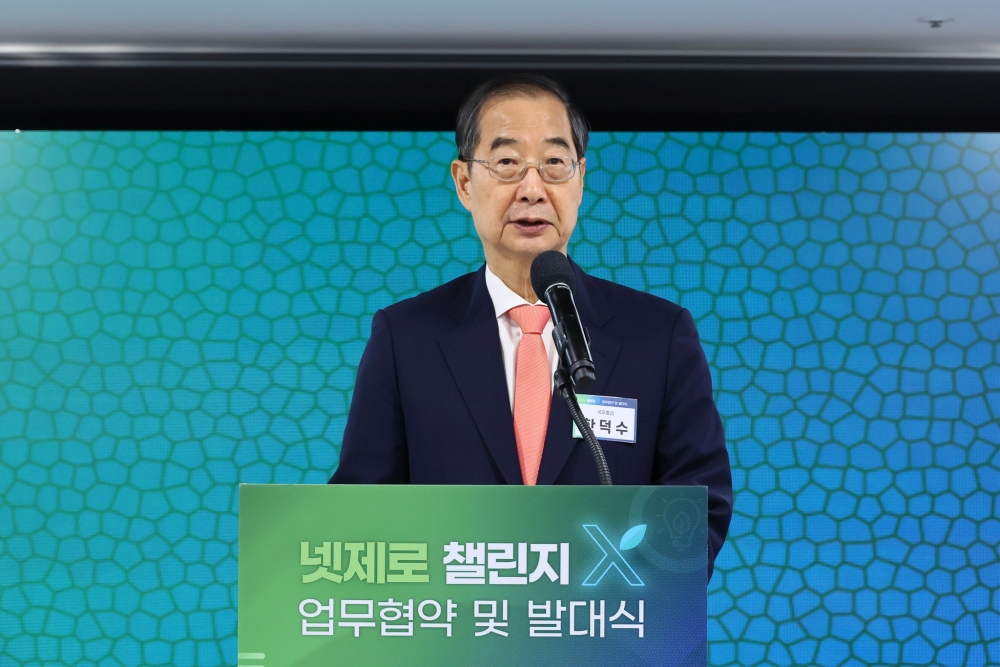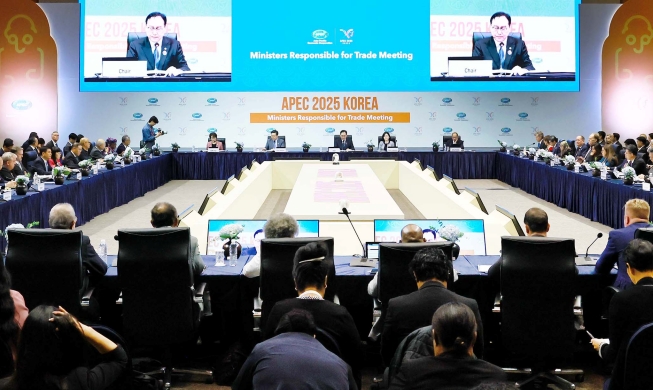
Prime Minister Han Duck-soo on Sept. 24 gives a speech at the business agreement and launching ceremony for the Net Zero Challenge X, held at Front One in Seoul's Mapo-gu District. (Prime Minister's Secretariat in Office for Government Policy Coordination)
By Kim Hyelin
Net Zero Challenge X, a private-public cooperation project to discover and cultivate startups with innovative technologies on carbon neutrality, was launched on Sept. 24.
The goal of the project is to discover and support startups that have innovative technologies in the carbon neutrality and green growth sectors, and cultivate unicorn companies (large startups).
The Presidential Commission on Carbon Neutrality and Green Growth held a business agreement and launch ceremony the same day for the Net Zero Challenge X at D-Camp Front One in Seoul's Mapo-gu District.
Prime Minister Han Duck-soo gave a speech at the ceremony to encourage participating companies.
At a meeting held right after the ceremony, he gave orders to relevant government branches to heed the opinions of startups and participant companies, and to provide various types of support so that innovative ideas can be developed into successful businesses.
The presidential committee explained that carbon regulations centered on the European Union (EU) have emerged as part of a new international trade order, and said demand for decarbonization is increasing not only for individual companies' production processes but also for the entire supply chain.
The committee also announced plans to push ahead with Net Zero Challenge X so that it can discover startups that have innovative technologies for carbon neutrality, and expand its investments.
Such goals aim to strengthen main industries' competitiveness, and to occupy in advance opportunities in the climate technology sector.
A meeting was held after the business agreement ceremony to vitalize startups with carbon neutrality and climate technologies. Prime Minister Han said at the meeting, "The international community's demand for carbon neutrality is gradually on the rise, with the Carbon Border Adjustment Mechanism set to come in at full force from 2026."
"We desperately need startups' spirit to challenge themselves to generate practical changes via innovations in science and technology, and their commercialization.
Twenty-nine participating companies and the government will select and support startups with carbon neutrality and climate technologies from January next year.
kimhyelin211@korea.kr
